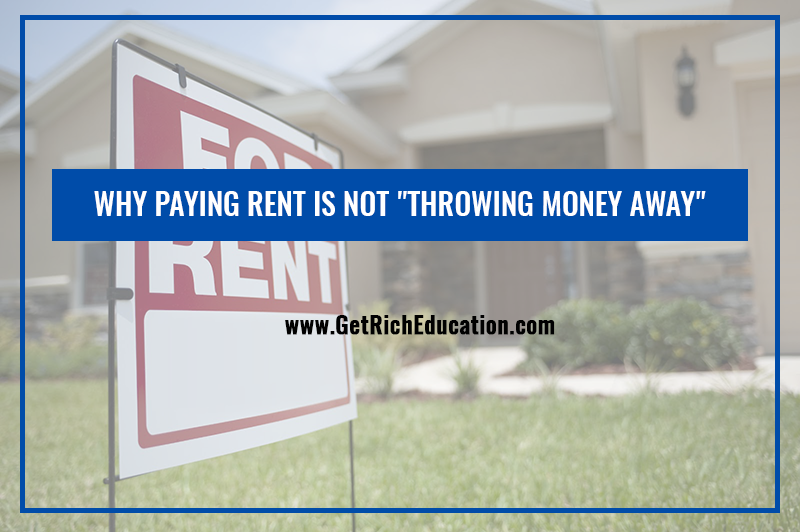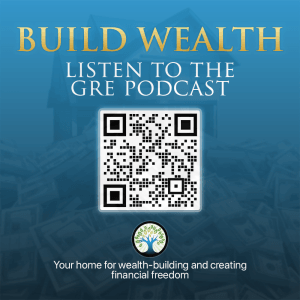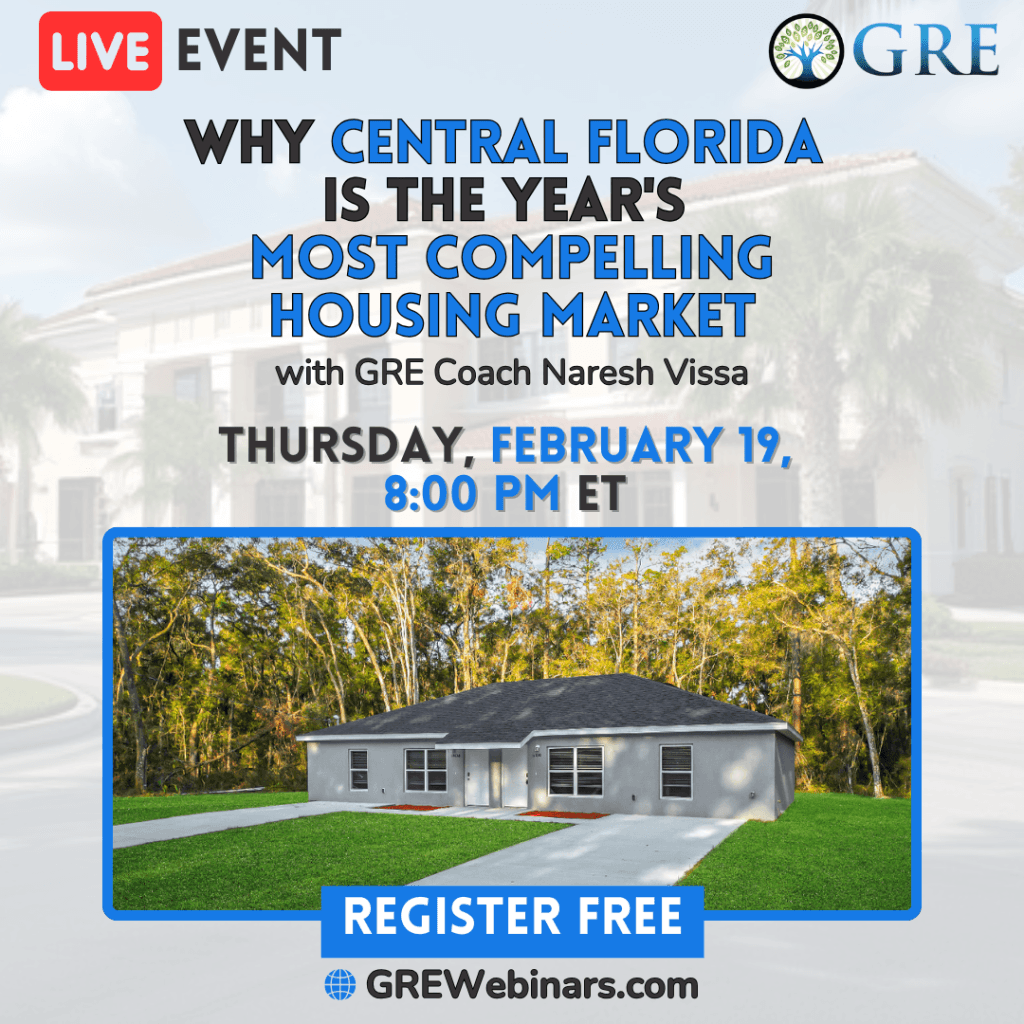Most people think that owning a home is a financial asset. That’s not true.
In fact, the top-selling financial author of all-time, Robert Kiyosaki, says, “A home is a liability, not an asset.” An asset puts money into your pocket every month. A home takes money out of your pocket every month.
Some say, “Paying rent is like throwing money away.” That’s not true either. You just spent $500 to “rent” an airplane seat for six hours, but you didn’t lament about throwing that money away.
You enjoyed the benefit of using each item – a home and an airplane seat.
Though owning a home is rarely a good financial investment, you still tie up a lot of money in your humble abode, so let’s explore this.
You have four choices in how you live: own your home, pay rent to a landlord, be homeless, or live with your parents – haha!
It makes sense to rent more often than many think. In fact, more people are renting. The current U.S. homeownership rate is 64%, down from 69% from the recent peak in 2004.
Let’s look at 18 factors in the “Rent vs. Own” decision, many of which you’ve never thought about:
Time. Do you really want to spend any weekends at Home Depot, evenings online researching how to fix garage doors, or fixing leaky faucets with pliers? Homeowners will. To avoid feeling like you’re living in a “dated” home, you might need to upgrade kitchens and bathrooms every 15 years.
Choice. There are more homes for sale than there are rentals, especially at the higher end.
Equity Buildup. Equity is the difference between what your home is worth and how much you owe on a mortgage. Homeowners build equity, renters don’t. But equity is an awful investment. Equity has zero return because the presence or absence of home equity has nothing to do with whether or not your home appreciates. Additionally, most of your mortgage payment goes toward interest, not principal. Your interest payment alone could be higher than a rent payment for a like property.
Liquidity. Though most homeowners build equity, it’s difficult to access. To tap your home equity, you must prove to a bank that you qualify again, wait months, incur costs, and you still might be denied access to the equity. Houses make terrible “banks”. Renters stay liquid.
Opportunity Cost. Many homeowners immediately tie up a 20% down payment in their home. Again, these are illiquid dollars with zero return. Instead, your chunk of money can be earning a return for you elsewhere.
Sunk Cost. This is an overlooked killer for homeowners. Mortgage loan closing costs, constant home maintenance, repairs, property taxes, utilities, landscaping, HOA dues, replacing pipes, repairing roofs, snow removal, roofing, and painting costs are never fully recouped. Renters bear fewer of these sunk costs.
Control. For some homeowners, the peace of mind in knowing that a landlord can’t tell you to move is priceless. You have an anchor. You can knock out a wall, renovate your kitchen, or add a fence. Make it yours.
Appreciation. Renters don’t experience price appreciation. Worse, they might even have to weather rent price increases. Homeowners with loans benefit from financial leverage, which amplifies wealth in an appreciating environment. Inflation becomes a friend to mortgage debtors as it helps you “pay down” your loan balance – something very few people realize. Of course, home values can deflate too.
Tax Advantages. Homeowners often receive a mortgage interest deduction.
Mobility. Renting keeps you nimble. With a new job opportunity or a life change like marriage and kids, your mobility is an asset. Homeowners eventually sell and are then beaten up with closing costs, make-ready expenses, and sales commissions, whose sum can shave 10% from your sale price.
Low mortgage rates. Homeowners can still tie up long-term fixed interest rate debt at historically low rates.
Price and Rent-To-Value Ratio. If a home costs less than $250,000, own it. If it costs more, pay rent. If the monthly rent is under $700 per $100,000 of home, rent it. If rent costs more, own it. This formulaic approach indicates how much “home” you have the benefit of living in per dollar paid. Regionally, it makes more sense to rent on the U.S. coasts and own in the heartland. There are numerous regional exceptions to this rule of thumb.
Community formation. Owning your home provides you and your neighbors with a feeling of “belonging.” Homeowners have more interest in looking out for the common good of the neighborhood. That helps everyone. People feel more fulfilled when they’re part of something greater than themselves.
Travel. This is so simple yet everyone overlooks this. Have you been to New York City? Arizona? Florida? Alaska? Spain? Ecuador? If you haven’t even gotten out to see the very world that you live in, consider renting until you’ve found the geography that fits your interests.
Personal cash flow. If it costs substantially more to own a place rather than rent that place, then rent it…and vice versa. Homeowners that divert too much of their income into a mortgage payment are what’s known as “house poor.” This stifles your opportunity to travel, invest, and provide opportunity for your family.
Natural disasters. Areas subject to frequent earthquakes, hurricanes, and floods clearly tilt to the renter’s advantage. Even if adequately insured, these catastrophes are worse for homeowners. Have renter’s insurance.
Consumer advantages. Owning rather than renting can give you higher credit card limits and more favorable insurance rates.
Pets. Homeowners have the upper hand here.
There they were – the 18 “Rent vs. Own” considerations.
Consider that your housing payment is often your life’s greatest expense. You’ll be making it month after month, year after year. It’s worth thinking this through, being strategic, and “running the numbers”.
When people say “Buying a home was the best investment I ever made”, be careful. They usually didn’t consider all the ongoing costs. A decided stigma still exists with renting. But you don’t live your life for the Joneses, you live it for you.
What’s the bottom line with what makes the most sense financially? Because higher rent amounts don’t rise proportionally to higher purchase prices, be a renter in a high-end home and buy low-cost income properties which you rent to others.
But there’s no one definitive factor in the Rent vs. Own decision because this is where finances and feelings intersect.
Here’s hoping that you found a few considerations that you’ve never thought about before!
Thought getting your money to work for you creates wealth? It doesn’t! That’s a myth. My international best-selling E-book is now 100% free, 7 Money Myths That Are Killing Your Wealth Potential. Get it here for a limited time.





Want to learn more
Hi Alyrone,
The Get Rich Education podcast is our most popular learning platform.
Don’t know about podcasts? Just download the Get Rich Education app and listen.
All free.
You are so fare off the mark on every point. First off the interest you pay is deductable on your taxes. You get bundled insurance credit for owning. Of course you spend money on upkeep but why wouldnt you want to have a nice updated place to live, rather than the same outdated rental. I have owned 3 houses in 20 years. In each i have made, 175 thousand, 60 thousand and 34 thousand. I put no where near that much into my homes.
I virtually lived rent free for over 15 years, had more room , garages i placed music as loud as i want i dont have to hear your sreaming kids through my walls.
In some areas like where i live owning is actually cheaper than renting. Average 3 bed 2 bath rent is 2100 a month mortgage for a 3 bed home 2 bath and a 2 car garrage with a yard 1745. Taxes and insurance included.
Your logic is flawed throughout this article and i could line by line counter with facts every one of your claims
Bad advice to the masses shame on you
You have accomplished what he said if it is cheaper to owning then own. The gains you have experienced are from the market appreciation. Most people build their logic on exceptions, and do you want to live by exceptions. And my question to you are you financially free? Because financial freedom can easily be done in under 10 years. And with financial freedom every expense you have is covered by passive income. If houses gave you a return then no one would ever lose their house due to default. Saving money is not making money.
I rent at 800 a month which includes utilities and lawn being mowed. In a beautiful country setting house on a farm in near Keith’s birthplace which was fully gutted and made and all brand new. I would set the rent value at least 1000 and I would still pay for it. And the market here is right on the line between which is better.
And I could buy a house but I bought a rental instead, because investing is a numbers game, and not by emotions. This ONE rental currently covers over a 1/4 of our personal expenses which I see a far more value than owning a home.
You must not have read this article well, he made some of the points you made, and the article is actually built to consider both sides not just lean towards one or the other…
I agree. The entire rent an airplane seat example didn’t make sense either. Most people don’t spend their life on a plane flying everyday and if they do it’s for work and that seat is paid for by their employer. However, if for w.e reasons I had to travel daily for work via plane and my company didn’t reimburse me then I would look into buying a private plane. Not only would that help build equity, I could use it as a revenue stream, while the plane is not being used by me
Owning your home is a financial liability, it takes money out of your pocket every month. Rent is not “throwing money away.” When you fly, renting your seat for $500 is not “throwing money away.” Renting often makes more sense. Before buying, add up closing costs, maintenance, opportunity cost, immobility, hardware store trip time and more. Run the numbers that sales agents don’t want you to run. – Keith Weinhold , Get Rich Education
thank you for this content.